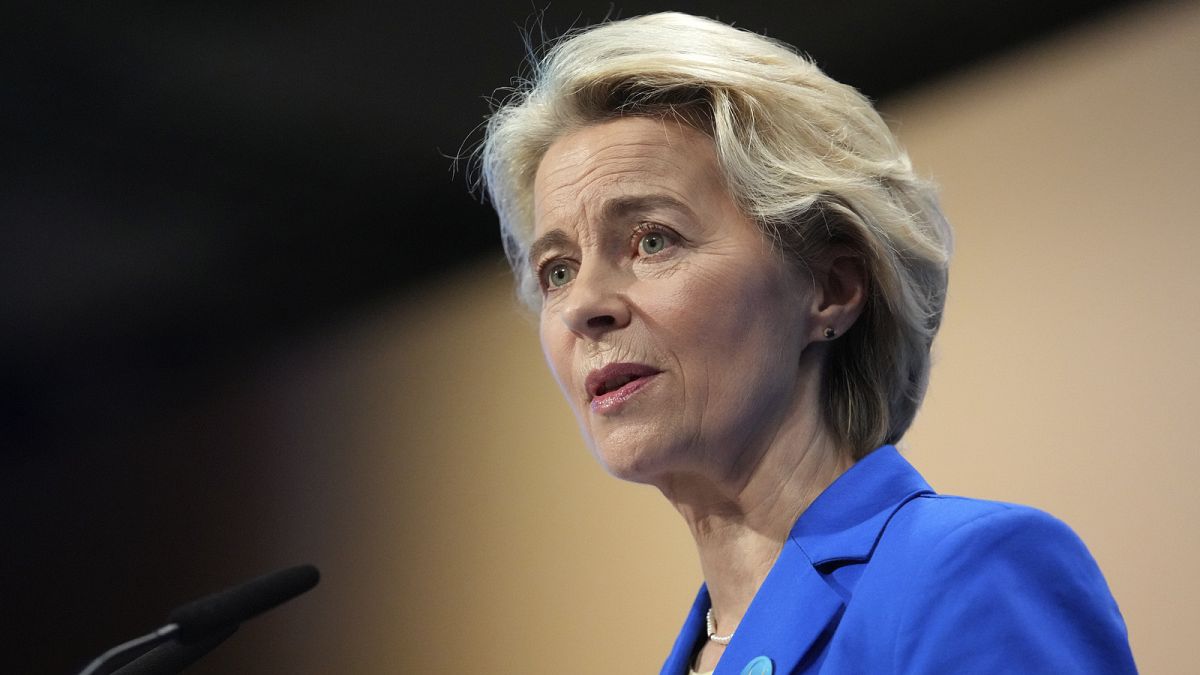Ursula von der Leyen, the president of the European Commission, is seeking a second term and needs an absolute majority of votes in the European Parliament. Despite facing some opposition from different political groups, she is confident in securing the necessary votes to continue leading the Commission. Von der Leyen has been praised for her leadership during challenging times, including the global pandemic, the Ukraine war, and energy crisis. However, she also faces criticism from both the right and left for her environmental commitments and relationships with different political factions.
While the European People’s Party (EPP), Socialists and Democrats (S&D), and liberals of Renew Europe are expected to back von der Leyen, she needs to secure additional votes from the Greens and the European Conservatives and Reformists (ECR) to ensure her re-election. The EPP members and some liberals have expressed opposition to her candidature, making her position uncertain. Von der Leyen’s ability to secure enough support from these two groups remains a challenge, as they have conflicting ideologies and demands that she must navigate.
The Greens have emerged as unlikely kingmakers in von der Leyen’s re-election bid, with their votes potentially deciding the outcome. Despite some recent legal challenges against her executive, the Greens are expected to support her to avoid potential instability within the EU. Von der Leyen’s leadership has been seen as a stabilizing force in the face of international uncertainties, such as US politics, the Ukraine crisis, and the COVID-19 pandemic. Her removal could lead to additional instability and an unprecedented institutional crisis within the EU.
The upcoming vote on von der Leyen’s re-election is crucial for the stability of the European Union. Many MEPs believe that supporting her candidacy is essential to maintain stability and continuity in the EU’s leadership. Despite some concerns and opposition from various political factions, von der Leyen’s experience and leadership have been recognized by many as necessary during uncertain times. The outcome of the vote will not only determine her second term but also impact the future direction of the EU and its relationships with international partners.
Supporting von der Leyen’s re-election is seen as a way to prevent further destabilization within the EU and maintain a sense of coherence and unity among member states. Her role as a supporter of Ukraine and her leadership during challenging times have been highlighted as reasons to back her candidacy. Failure to secure enough votes for her re-election could lead to a period of instability and uncertainty within the EU, with potential repercussions on its international relationships and standing.
In conclusion, Ursula von der Leyen’s bid for a second term as president of the European Commission is facing challenges and uncertainties. Despite opposition from various political groups, she remains confident in securing the necessary votes for her re-election. The support of key factions such as the EPP, S&D, and Renew Europe, as well as the backing of the Greens, will be crucial in determining the outcome of the vote. Von der Leyen’s leadership has been seen as a stabilizing force within the EU, and her removal could lead to further instability at a critical time. The upcoming vote will not only decide her fate but also impact the future direction and stability of the European Union.











